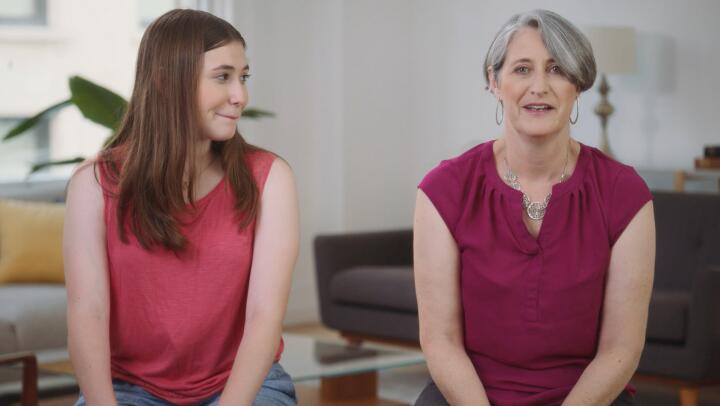8 Conditions Linked to Pediatric ADHD

Medically Reviewed By William C. Lloyd III, MD, FACS
Written By Sarah Handzel, BSN, RN on April 21, 2022
-
 Conditions associated with ADHDAttention deficit hyperactivity disorder (ADHD) is one of the most common mental disorders affecting children. While it may occur on its own, a variety of other problems are also common in children diagnosed with ADHD. If your child has ADHD, be sure to ask your pediatrician about screening for other issues. Screening efforts can identify other disorders and help direct treatment plans. In many cases, conditions associated with ADHD can be effectively managed so children can thrive.
Conditions associated with ADHDAttention deficit hyperactivity disorder (ADHD) is one of the most common mental disorders affecting children. While it may occur on its own, a variety of other problems are also common in children diagnosed with ADHD. If your child has ADHD, be sure to ask your pediatrician about screening for other issues. Screening efforts can identify other disorders and help direct treatment plans. In many cases, conditions associated with ADHD can be effectively managed so children can thrive. -
 1. AnxietyIt’s normal for children to worry about certain things, but when this worry interferes with home and school life, it may actually be anxiety. Some studies show that
1. AnxietyIt’s normal for children to worry about certain things, but when this worry interferes with home and school life, it may actually be anxiety. Some studies show thatup to 35% Trusted Source PubMed Central Highly respected database from the National Institutes of Health Go to source of kids diagnosed with ADHD also have anxiety disorders, such as general anxiety, separation anxiety, or social anxiety. Anxiety and ADHD may make a child more likely to have attention problems, school phobias, and mood disorders. It may also be harder for these kids to form normal social relationships with their peers. -
-
 2. Autism spectrum disorderAccording to
2. Autism spectrum disorderAccording toa study published in 2019 Trusted Source PubMed Central Highly respected database from the National Institutes of Health Go to source , autism spectrum disorder (ASD) is one of the most common conditions associated with ADHD. Many doctors believe the symptoms of ADHD overlap those of ASD, which can make it difficult to tell the two apart. Also, children diagnosed with both ADHD and ASD have more severe symptoms across the board and may experience other issues, such as sleep challenges. If your child has problems communicating and interacting with others, or functioning properly at home or school, they should be screened for ASD. -
 3. Conduct disorderA child may be diagnosed with conduct disorder (CD) if they show a persistent pattern of aggression toward others. They may frequently break the rules at home or at school. As a child ages, these behaviors may lead to serious consequences, like legal problems, if they’re not treated. Kids diagnosed with CD are also more likely to be injured compared to their peers. They may lie or steal, abuse drugs, skip school, bully, fight others, or be cruel to animals.
3. Conduct disorderA child may be diagnosed with conduct disorder (CD) if they show a persistent pattern of aggression toward others. They may frequently break the rules at home or at school. As a child ages, these behaviors may lead to serious consequences, like legal problems, if they’re not treated. Kids diagnosed with CD are also more likely to be injured compared to their peers. They may lie or steal, abuse drugs, skip school, bully, fight others, or be cruel to animals. -
 4. DepressionSome estimates show that
4. DepressionSome estimates show thatup to 50% Trusted Source PubMed Central Highly respected database from the National Institutes of Health Go to source of children with ADHD also live with depression. This rate is more than five times greater compared to kids who are not diagnosed with ADHD. In many cases, depression starts years after an initial ADHD diagnosis. Your child may feel sad or hopeless most of the time, have a hard time focusing, feel useless or worthless, or stop participating in activities they once enjoyed. Changes in eating or sleeping patterns can also be symptoms of depression. Many children with ADHD also benefit from prescribed antidepressants. -
 5. Learning disordersLearning disorders and ADHD are closely linked. If your child has a learning disorder, they have difficulty in one or more areas of learning. This doesn’t mean they aren’t intelligent; however, symptoms of ADHD, like trouble paying attention and staying on task, can make it harder to succeed in certain areas. Your child may have difficulty reading (dyslexia), difficulty with math (dyscalculia), or difficulty with writing (dysgraphia). Receiving a diagnosis and getting proper assistance and accommodations can help children with learning disorders succeed.
5. Learning disordersLearning disorders and ADHD are closely linked. If your child has a learning disorder, they have difficulty in one or more areas of learning. This doesn’t mean they aren’t intelligent; however, symptoms of ADHD, like trouble paying attention and staying on task, can make it harder to succeed in certain areas. Your child may have difficulty reading (dyslexia), difficulty with math (dyscalculia), or difficulty with writing (dysgraphia). Receiving a diagnosis and getting proper assistance and accommodations can help children with learning disorders succeed. -
-
 6. Obsessive-compulsive disorderIn addition to the symptoms of ADHD, your child may have intrusive, repetitive, and unwanted thoughts, or irrational urges to complete certain actions. These are symptoms of obsessive-compulsive disorder (OCD), and they usually develop in childhood. OCD symptoms can be severe and may interfere with your child’s ability to enjoy life normally. Like ADHD, the exact cause of OCD isn’t known. However, many children with both ADHD and OCD benefit greatly from the use of prescribed medication and behavioral therapy.
6. Obsessive-compulsive disorderIn addition to the symptoms of ADHD, your child may have intrusive, repetitive, and unwanted thoughts, or irrational urges to complete certain actions. These are symptoms of obsessive-compulsive disorder (OCD), and they usually develop in childhood. OCD symptoms can be severe and may interfere with your child’s ability to enjoy life normally. Like ADHD, the exact cause of OCD isn’t known. However, many children with both ADHD and OCD benefit greatly from the use of prescribed medication and behavioral therapy. -
 7. Oppositional defiant disorderSome children with ADHD act out in ways that cause significant disruptions at home and school. Symptoms may include problems controlling their temper, deliberately annoying other people, frequent arguing, blaming others for their own mistakes or behavior, and wanting to hurt others. If your child has these symptoms, it could be oppositional defiant disorder (ODD). ODD frequently occurs along with ADHD; in many cases, it starts before a child is 8 years old. Children with ODD are more likely to act out around people they’re familiar with.
7. Oppositional defiant disorderSome children with ADHD act out in ways that cause significant disruptions at home and school. Symptoms may include problems controlling their temper, deliberately annoying other people, frequent arguing, blaming others for their own mistakes or behavior, and wanting to hurt others. If your child has these symptoms, it could be oppositional defiant disorder (ODD). ODD frequently occurs along with ADHD; in many cases, it starts before a child is 8 years old. Children with ODD are more likely to act out around people they’re familiar with. -
 8. Sleep disordersMany kids who are diagnosed with ADHD also have difficulty sleeping. Insomnia is one of the most common sleep disorders in children with ADHD. In many cases, sleep disorders are also linked to other conditions like anxiety or depression. Treatments for sleep problems usually focus on any underlying conditions. Stimulant medications for ADHD can contribute to sleep problems, but working with your child’s doctor can help you find a solution. Along with a combination of behavioral therapy and medication, practicing good sleeping habits, trying light therapy, or using relaxation techniques may all help your child sleep better at night.
8. Sleep disordersMany kids who are diagnosed with ADHD also have difficulty sleeping. Insomnia is one of the most common sleep disorders in children with ADHD. In many cases, sleep disorders are also linked to other conditions like anxiety or depression. Treatments for sleep problems usually focus on any underlying conditions. Stimulant medications for ADHD can contribute to sleep problems, but working with your child’s doctor can help you find a solution. Along with a combination of behavioral therapy and medication, practicing good sleeping habits, trying light therapy, or using relaxation techniques may all help your child sleep better at night.
ADHD in Children | Conditions Associated with ADHD



















